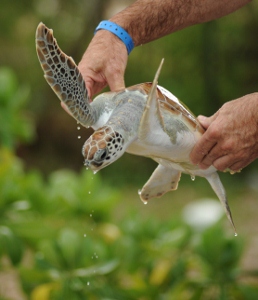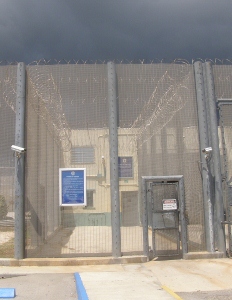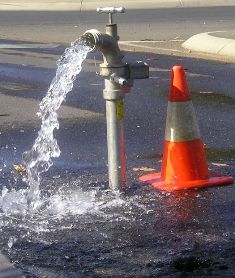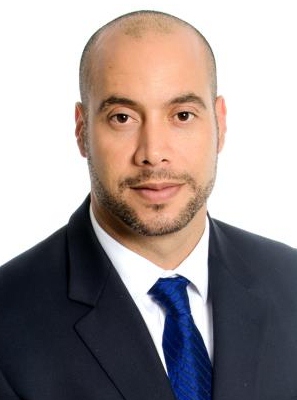Archive for February 5th, 2013

Scientists find guests at risk from handling turtles
 (CNS): Although the Cayman Turtle Farm insists that the handling of their captive turtles is safe for visitors, research published by the Royal Society of Medicine has found otherwise. According to the scientists, while it may be safe to handle wild turtles, the captive animals can expose tourists to toxic contaminants and zoonotic pathogens that can jump from animals to people. Symptoms from these bacteria, viruses, fungi and parasites don’t always show themselves immediately and on the surface can seem like gastrointestinal disorders or flu, but seriously affected people can suffer from septicaemia, pneumonia, meningitis and acute renal failure. (Photo by Michelle de Villiers)
(CNS): Although the Cayman Turtle Farm insists that the handling of their captive turtles is safe for visitors, research published by the Royal Society of Medicine has found otherwise. According to the scientists, while it may be safe to handle wild turtles, the captive animals can expose tourists to toxic contaminants and zoonotic pathogens that can jump from animals to people. Symptoms from these bacteria, viruses, fungi and parasites don’t always show themselves immediately and on the surface can seem like gastrointestinal disorders or flu, but seriously affected people can suffer from septicaemia, pneumonia, meningitis and acute renal failure. (Photo by Michelle de Villiers)
The research by the London based medical journal contradicts claims by the CTF that there is no risk to visitors, a point it has been at pains to stress after the cruise lines, which send a significant number of passengers on trips to the farm when calling on Grand Cayman, had raised concerns about the risks to their customers.
The scientists confirm findings by the animal activist charity, World Society for the Protection of Animals (WSPA), which is campaigning for the CTF to transition towards a conservation facility. The biggest bacterial culprits are E.Coli and Salmonella, although there are some lower infection threats from viruses such as Vibrio.
Holiday experiences that expose tourists to sea turtles may allow people to pick up the animals from confined pools, although some even allow tourists to eat turtle meat raised in intensive farm-like conditions.
The paper included a case study from the Cayman Turtle Farm (CTF) in Grand Cayman, which is unique as the only facility in the world to rear sea-turtles as meat available to the public, as well as being open to the thousands of tourists which pour off the cruise ships onto the island every day. The intensive and cramped conditions which the farm works under – in both the production and front of house tourist areas – can serve to concentrate these pathogens and increase risk to those people visiting the farm, the research revealed.
Clifford Warwick of the Emergent Disease Foundation, the lead author of the report, warned that the distribution of visitors exposed to the turtle farm presented opportunities for contaminants to spread through tourist hubs, including cruise ships and airline carriers.
Warwick expressed concerns that awareness of the potential human health threats posed by facilities such as the CTF may not be well understood by healthcare professionals and public awareness may be even lower, stating that overcoming this would be key to prevent and control the spread of sea turtle-related diseases.
Due to this low awareness people rarely trace back or attribute their illness to a recent experience handling wild sea turtles. This, along with the often generic nature of the symptoms, makes it hard to track the full distribution of these pathogens.
The WSPA’s campaign leaders said the charity was not surprised by the scientific findings.
“This independent peer reviewed scientific paper demonstrates that the recent assessment of the Farm’s operations is inherently flawed,” he said “We hope that the Cayman Turtle Farm recognizes that the only real way to completely remove the human health threat will be to end the ‘unique wildlife encounter’ currently at the facility and takes steps to do so, which will also immediately improve the lives of the turtles in their care.”
The CTF, however, has on a number of occasions denied any risk to its visitors by handling the turtles. Following an inspection commissioned by the farm in December the CTF management said the inspectors confirmed there were no health or injury concerns with regard to guests handling turtles, either for the turtles or for the humans interacting with them.
In a short comment on Tuesday morning, which a spokesperson for the CTF said would be followed up with a more comprehensive statement, officials said the allegations were misleading and sensationalised.
"The Cayman Turtle Farm follows and enforces strict turtle handling protocols that are communicated to its guests through signage and spoken instructions. All turtle handling is supervised, and the established protocols follow the US Centers for Disease Control and Prevention guidelines for the safe handling of reptiles," the spokesperson added.
The farm said the lack of risk to humans was supported as over 40 years millions of guests have handled turtles but there has not been one single known case of transmission of illness or disease.
"This is a clear effort by the WSPA to undermine the business of the CTF in its on-going goal to shut down our operations, since their campaign thus far has been unsuccessful," the CTF stated, undermining comments by the WSPA that during its recent visit with farm management lines of communication had been opened.

Prison conditions ‘shocking’
 (CNS): Northward prison has been described as “barely fit for human habitation” in a report by the UK’s prison inspector following a visit to the facility last summer. The report describes a shocking environment of mismanagement, drug abuse, bullying and violence, victimization, poor and inhumane treatment of inmates and a pressing need for significant investment and a radical review of governance structures. Contrary to the popular myth of ‘Hotel Northward’, the inspector revealed a catalogue of problems at the prison that ensure very poor outcomes for all prisoners. Conditions at Fairbanks, the women’s prison, were considered slightly better but only because of the low number of inmates at the time of the inspection.
(CNS): Northward prison has been described as “barely fit for human habitation” in a report by the UK’s prison inspector following a visit to the facility last summer. The report describes a shocking environment of mismanagement, drug abuse, bullying and violence, victimization, poor and inhumane treatment of inmates and a pressing need for significant investment and a radical review of governance structures. Contrary to the popular myth of ‘Hotel Northward’, the inspector revealed a catalogue of problems at the prison that ensure very poor outcomes for all prisoners. Conditions at Fairbanks, the women’s prison, were considered slightly better but only because of the low number of inmates at the time of the inspection.
“Facilities were unbearably hot and often filthy, dark and oppressive,” said the report, which follows an inspection carried out in July when there were some 205 inmates housed at HMP Northward. “There was no privacy and most cells were overcrowded. The general fabric of theenvironment was very poor, with water ingress and vermin infestation. Facilities at Fairbanks were only marginally better.”
Nick Hardwick, Chief Inspector of Prisons in the UK, said that what the inspectors found was troubling and concerning, particularly given that the prisons operated in the name of Her Majesty’s Prison Service.
“Whatever one’s view of the role of imprisonment, most people would expect prisons to hold prisoners safely and decently, and to ensure prisoners leave as better people than when they came in. Northward and Fairbanks fall well short of this standard,” he said in a release following the report’s publication Tuesday.
With urgent improvements needed to the prison as well as the custodial facilities operated by the Royal Cayman Island Police Service and court services, Hardwick said it was difficult to see how this would be achieved without significant investment and a radical review of governance structures.
Listing a catalogue of problems, from endemic drug use to the poor attitudeof staff towards the prisoners, the report pointed to the arbitrary nature of the treatment of inmates, the lack of mental health care and rehabilitation as well as the “appalling” treatment and segregation of prisoners in basic cells, which lacked any legitimate authority.
“Our findings at both prisons were disturbing," the report stated. “At Northward, some findings were shocking. Conditions were decrepit, meaningful accountability almost non-existent, and work to deliver decent standards and ensure people are prepared for a successful return to society severely lacking. Against almost all our tests of a healthy prison, both institutions were performing poorly.”
Prisoners at Northward told the inspectors that they did not feel safe, reporting high levels of victimisation by both staff and prisoners.
“Concepts such as individual risk management or strategies to confront antisocial behaviour hardly existed. The management of security intelligence was chaotic, and the evidence suggested illegal drug use was endemic. We had very serious concerns for the safety of a small number of children and young adults held at Northward,” the inspectors stated in the report. “There were no systems to protect them from predatory behaviour, and it says much that those who seemed most concerned for their safety were other prisoners.”
Although prisoners reported being depressed or suicidal when they arrived in custody, support for the wellbeing of those in crisis was crude and ineffective, the report found.
Inmates are placed inappropriately in segregated conditions, and multidisciplinary or mental health interventions were hardly available. In addition, the segregated conditions used to hold both vulnerable inmates were described as “disgraceful and unaccountable”. Prisoners, some with mental health conditions, were held in squalid conditions, without any legitimate safeguards.
The fact that only four female inmates were held at Fairbanks and the almost one-to-one nature of staff-prisoner numbers meant that women were treated much better and were safe. However, the report pointed out that there was no guarantee that this would remain the case if there was a significant increase in numbers.
“Both institutions were in poor physical condition and in dire need of significant investment,” the report said, describing the environment as shambolic. Staff-prisoner relationships were also described as poor, with staff at best passive and at worst indifferent to the needs of prisoners. The report pointed to the arbitrary and unregulated exercise of staff discretion.
There was little for prisoners to do, with both institutions characterised by “indolence and inactivity", the report said, with no meaningful strategy to promote learning and skills in preparation for release.
The well-documented drug problem at the prison was also noted by the report, which found that 28% of inmates at Northward tested positive for ganja. “There were high levels of illegal drugs at Northward. Many prisoners said that it was easy to get illegal drugs and alcohol into the prison and there were high numbers of drug finds. However, the prison took no action to prevent drugs getting in and undertook no targeted drug testing.
“The report’s findings confirm my view that all custodial facilities need to be subject to regular independent inspection to ensure even the most basic human rights standards are upheld and meaningful accountability maintained,” Hardwick said in a release about the report. “The absence of such arrangements … was a significant factor in the very poor conditions we found.”
In the wake of the damning revelations, the Portfolio of Internal and External Affairs, which is responsible for the prison service, said it was aware of the findings and action was being taken. The UK inspectors’ findings dovetailed with two other reports undertaken over the last 18 months.
“Over the past year all of these documents have contributed to an evidence based approach by the Portfolio and HMCIPS to addressing problems that had become evident,” officials stated.
Eric Bush, the chief officer in the portfolio, said officials knew what the situation was when they requested the inspection and where the prison needed to be. “There are still many issues to be addressed but the important thing is that we have a defined roadmap, based on the Inspectorate’s report and other expert findings, that provides us with clearly defined short, mid- and long-term goals.”
In line with the recommendations of the UK inspectors, local prison officials claim to have updated adjudication procedures for dealing with prisoner offences and grievances against staff. “The policy is presently being piloted for six months,” officials added.
“Repairs are being made to existing buildings so that juveniles currently in Eagle House can be relocated by mid-February 2013, and segregated from the adult population.”
Officials also stated that the security department is conducting an on-going assessment of the drug situation to determine where prevention measures can be made more effective. A council of inmates elected in January will allow prisoners to share their concerns and help establish a more collaborative relationship with staff. A new partnership with the University College of the Cayman Islands (UCCI) and the Civil Service College (CSC) aims to improve management and leadership skills of the prison staff.
Having partnered with the University of the West Indies (UWI), City and Guilds Caribbean, and the Institute of International Recognized Qualifications (IIRQ) to certify the programmes that it delivers, the prison hopes to offer better learning opportunities for inmates. Each inmate will also receive a personalised health and fitness plan, the officials stated.
The portfolio said works have started to repair damaged structures that require immediate attention but funding is limited. An internal work board has been established which coordinates placement of inmates in the different jobs available around the prison. It aims to foster good work ethics, learning and skills development, diversity and equality. Meanwhile, the “Fresh Start” has assumed the role of identifying outside jobs for prisoners, including employment areas in which they can participate while they are still incarcerated.
“The inmate re-entry planning process and the officer advisory scheme have both been reviewed,” the local officials said. “Re-entry planning is now mandatory. All inmates will have a comprehensive re-entry plan that includes an accurate and timely assessment of their needs in various life areas.”
The portfolio has also requestedthat HMIP revisit HMCIPS in 2014 and Bush stated that by the inspector’s next visit the prison will not receive a “poor” rating in any of the four key areas.
Following the appointment of a new Director of Prisons in April as well as the recruitment of other key members of staff, the pace of the reform process is expected to increase. Nevertheless, Bush said challenges remain to address the problems outlined in the report and the need for a substantial investment during times of economic austerity.
The Inspectorate’s report can be found at www.pie.gov.ky and is posted below.

Drivers face delays in BT from burst pipe
 (CNS): Motorists in Bodden Town are being diverted as a result of a burst waterpipe in the district. The Cayman Water Authority said it has a broken water main on Bodden Town Road near to the local post office. Officials said that customers located on Bodden Town Road, from the junction of Manse Road to the junction of Gun Square Road will experience an interruption in service while repairs are carried out. The authority estimated that people could be without water as repairs are underway for around four hours. Meanwhile, motorists are asked to drive with caution and obey all traffic signs and the authority apologized for the inconvenience caused.
(CNS): Motorists in Bodden Town are being diverted as a result of a burst waterpipe in the district. The Cayman Water Authority said it has a broken water main on Bodden Town Road near to the local post office. Officials said that customers located on Bodden Town Road, from the junction of Manse Road to the junction of Gun Square Road will experience an interruption in service while repairs are carried out. The authority estimated that people could be without water as repairs are underway for around four hours. Meanwhile, motorists are asked to drive with caution and obey all traffic signs and the authority apologized for the inconvenience caused.

Former UDP chair in GT declares as independent
 (CNS): The former chairman of the George Town UDP committee has declared his intention to fight for one of the six seats in the capital at the general election in May, but the local business man will not be running on a party ticket. Stefan Baraud, who will be running as an independent candidate, went through a very public split with the UDP leader, McKeeva Bush, last year over the move by the former premier to cease negotiations with GLF Construction and bring in the Chinese developers, CHEC, on the cruise berthing project. The former chair of the Port Authority, who was ousted from the board when he disagreed with the move by his former party boss, also resigned from the UDP soon after.
(CNS): The former chairman of the George Town UDP committee has declared his intention to fight for one of the six seats in the capital at the general election in May, but the local business man will not be running on a party ticket. Stefan Baraud, who will be running as an independent candidate, went through a very public split with the UDP leader, McKeeva Bush, last year over the move by the former premier to cease negotiations with GLF Construction and bring in the Chinese developers, CHEC, on the cruise berthing project. The former chair of the Port Authority, who was ousted from the board when he disagreed with the move by his former party boss, also resigned from the UDP soon after.
Once tipped to go far in the United Democratic Party in the capital, Baraud was keen to express his independence when he told CNS Monday about his decision to runfor office without the support of a political party. Baraud added that he was considering seeking endorsement from the Coaltion for Cayman, but said his independence in this election campaign was very important to him.
Fighting for one of the six seats in George Town, where there is expected to be a significant number of candidates on the ballot sheet, Baraud said he was confident that he was in touch with the people of the capital and that he could serve their needs as a successful political representative.
“Our people have been struggling for too long in this country and deserve a representative they can count on,” Baruad said, adding he was committed and determined to help. “That’s why I am running as an independent candidate for George Town.”
Baraud said he would campaign on a platform of good governance, integrity and transparency, employment, increased job opportunities and training for Caymanians, reduced cost of living and higher standards of living, technical and vocational job training, 'one man, one vote' and, not surprisingly, support for the cruise tourism sector and related infrastructure development.
With interests in a broad range of businesses in the Cayman Islands, from retail, restaurants, watersports and construction development, he said he understood the importance of issues, such as technical and vocational training for Caymanians, cruise tourism, air and seaport infrastructure.
“I believe we can refocus and rebuild our country to become a place that once again has good governance, a more efficient government and more productive private sector that will deliver more jobs, higher wages and lead to a real improvement in household income.
Pointing to the need to preserve the natural beauty of the Cayman Islands and the environment for future generations and a just and humane society with a government that supports Caymanian families in health and education, Baraud asked voters to talk to him about what was important to them.
"I welcome your support, your questions and your concerns,” he said as he asked people to visit his website, call him or stop him on the street.